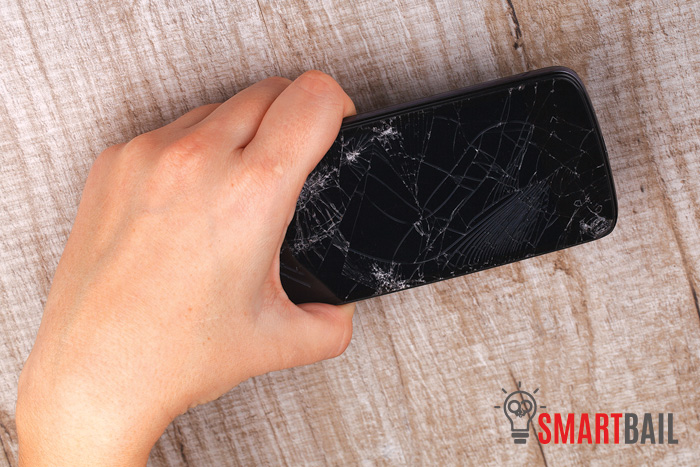
California lawmakers understand how important it is for a person to call for help when they’re in danger which is why it’s illegal to damage a communication device.
The good news is that the police aren’t going to knock on your door and arrest you just because you dropped your cell phone on the sidewalk and broke the screen. No one cares if you do something to damage your own communication devices.
The purpose of the law is to ensure that people have a way to call for help when they feel they are in danger. This frequently comes up in domestic abuse cases where the abusive partner destroys the victim’s phone, making it impossible for them to call for help or emergency medical attention. Even if you don’t do anything that would normally be considered damaging, such as removing the phone’s battery, doing it for the specific purpose of not allowing the other person to make an emergency call is considered damaging the communication device in California. The same is true if you do something like locking their cell phone in your vehicle so that they are prevented from having it.
The topic is addressed in Penal Code 591.5 PC. It states that, “a person who unlawfully and maliciously removes, injures, destroys, damages, or obstructs the use of any wireless communication device with the intent to prevent the use of the device to summon assistance or notify law enforcement or any public safety agency of a crime is guilty of a misdemeanor.”
It isn’t uncommon for anyone who is charged with damaging another person’s communication device to also be charged with breaking Penal Code 591 PC. That particular law deals with the issue of damaging communication lines. That law states, “a person who unlawfully and maliciously takes down, removes, injures, disconnects, cuts, or obstructs a line of telegraph, telephone, or cable television, or any line used to conduct electricity, or any part thereof, or appurtenances or apparatus connected therewith, including, but not limited to, a backup deep cycle battery or other power supply, or severs any wire thereof, or makes an unauthorized connection with any line, other than a telegraph, telephone, or cable television line, used to conduct electricity, or any part thereof, or appurtenances or apparatus connected therewith, is subject to punishment.”
There aren’t many defenses that can be successfully used in a case that deals with damaging another person’s communications devices, but there are some. Possible defenses include:
- No malice was intended (for example, if you borrowed your partner’s phone, accidentally dropped and broke it, and then an argument started and escalated).
- It’s a false accusation or setup (for example, your partner is actually the one who damaged the phone).
- The phone was damaged but the other person had access to another phone.
If you’re convicted of damaging another person’s communication device in order to prevent them from calling for help, you could be sentenced to one year in a county jail and/or ordered to pay a $1,000 fine. This is a misdemeanor offense.
